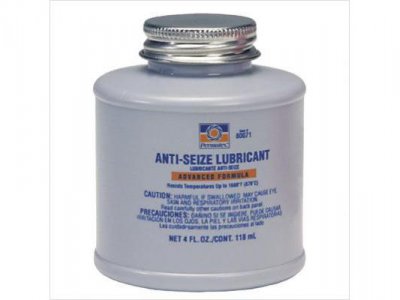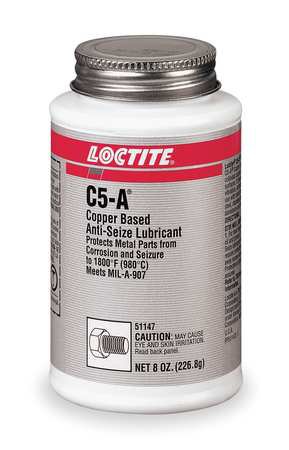- Joined
- Feb 8, 2014
- Messages
- 11,144
Emergency lighting for when the power goes outNot sure I would actually want anything half used from a reactor overhaul in my workshop - does it glow when you turn the lights out?

Emergency lighting for when the power goes outNot sure I would actually want anything half used from a reactor overhaul in my workshop - does it glow when you turn the lights out?

I worked with an old {To me at the time} machinist/mechanic back in the 70s' that taught me if I used Never-seize on any fastener that had to be torqued down to increase torque value of the fastener by a few pounds or inches to compensate for the "slipperiness" of the product or use a internal star washer or both.
I'm his age now but that lesson has stuck with me over the years and never let me down.
**********************Just Saying***************Gator********************
It's a ***** to be old & set in your ways isn't it. I agree with you completely.I have used the Permatex silver anti-seize (#133) for the past 27+ years now and it works great for the majority of items.
When I need hi-heat protection I use the Loctite copper anti-seize.
A lot of co-workers have switched to the stick style of anti-seize but I can't bring myself to change as I have been so happy with the #133 Permatex for so long. Has never let me down.
Mike.


For the last 30 or so years I have been using anti-seize that looked like powdered copper or graphite in some type of thick oil and it has never failed. Upon using the last that I had on hand, I attempted to purchase another can (seems to last forever). The person selling it to me stated that they could not get the silver or copper type anymore and sold me something that looked like white glue that 1st graders used to use to glue paper.
Does anyone know anything about this "white" pasty substance and does it work as good as the old silver or copper type. Is it true that you cannot purchase the old type any more or is it that the person selling it just stocked another brand (cheaper or easier to get). Replies please
Peter is correct. All torque specs I have seen recommend a reduction in measured torque to compensate for the reduced friction. This includes any oil on the threads, or the bolt heads and nuts.
And that does also apply for teflon tape on pipe or dryseal fittings. The lower friction can actually crack castings on things like hydraulic valves etc.
